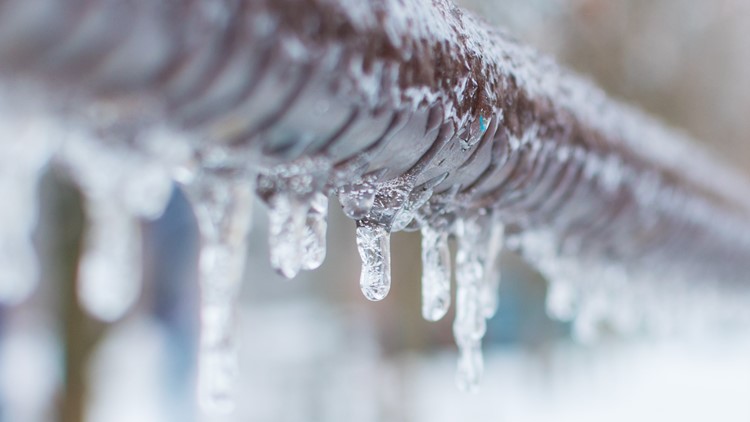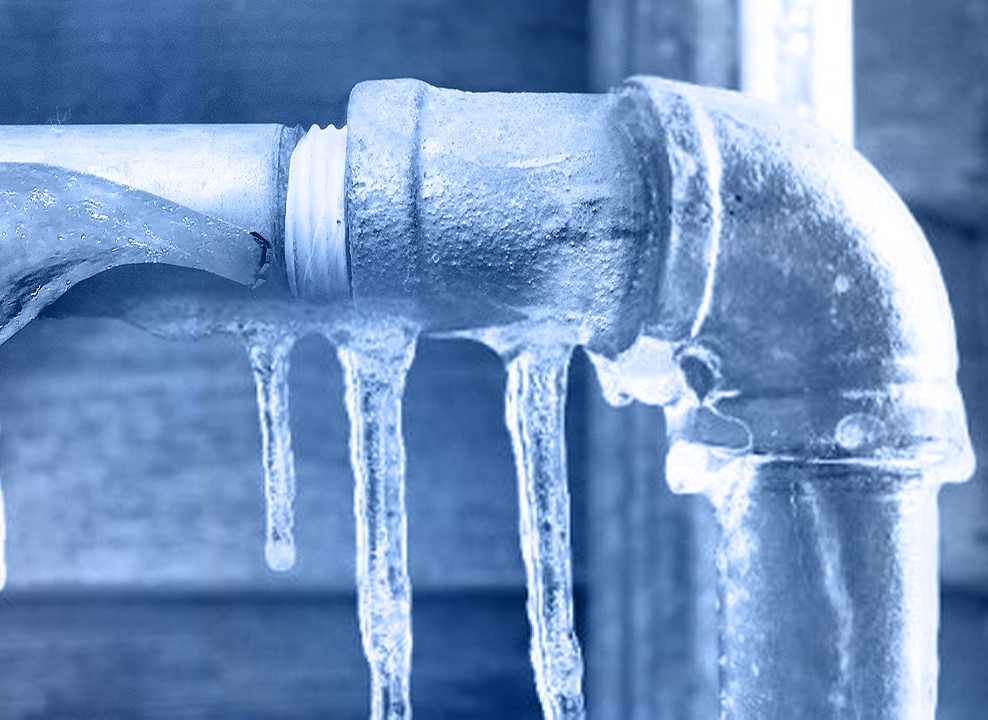Ways to Maintain Your Pipes from Cold Weather Issues: Essential Tips
Call TodayWe've discovered this post on Preventing and dealing with frozen pipes down the page on the web and thought it made perfect sense to relate it with you in this article.

Winter can wreak havoc on your pipes, particularly by freezing pipelines. Here's just how to prevent it from taking place and what to do if it does.
Introduction
As temperatures decline, the risk of frozen pipelines increases, potentially bring about costly repair services and water damages. Recognizing how to avoid icy pipelines is crucial for property owners in chilly environments.
Prevention Tips
Protecting vulnerable pipelines
Cover pipelines in insulation sleeves or use warm tape to safeguard them from freezing temperatures. Focus on pipes in unheated or exterior locations of the home.
Home heating methods
Maintain interior spaces effectively heated up, particularly locations with pipes. Open up closet doors to enable cozy air to distribute around pipes under sinks.
Exactly how to recognize frozen pipelines
Search for lowered water flow from faucets, unusual odors or sounds from pipes, and visible frost on exposed pipelines.
Long-Term Solutions
Structural adjustments
Take into consideration rerouting pipelines away from exterior walls or unheated areas. Include additional insulation to attic rooms, cellars, and crawl spaces.
Updating insulation
Buy top quality insulation for pipelines, attic rooms, and walls. Appropriate insulation aids maintain constant temperature levels and reduces the risk of frozen pipes.
Safeguarding Outside Pipes
Yard pipes and outside taps
Detach and drain garden tubes prior to winter. Install frost-proof faucets or cover outside faucets with protected caps.
Understanding Icy Pipes
What causes pipelines to ice up?
Pipelines freeze when revealed to temperatures listed below 32 ° F (0 ° C) for expanded durations. As water inside the pipelines freezes, it broadens, taxing the pipeline wall surfaces and possibly creating them to break.
Threats and problems
Icy pipelines can cause water disruptions, home damages, and costly repair services. Burst pipelines can flooding homes and trigger considerable structural damage.
Indications of Frozen Pipes
Determining icy pipes early can avoid them from breaking.
What to Do If Your Pipes Freeze
Immediate activities to take
If you suspect frozen pipelines, keep faucets open up to eliminate stress as the ice melts. Use a hairdryer or towels soaked in hot water to thaw pipes gradually.
Final thought
Preventing frozen pipes requires positive procedures and quick feedbacks. By recognizing the reasons, indicators, and safety nets, house owners can safeguard their pipes throughout winter.
Helpful Tips to Prevent Frozen Pipes this Winter
UNDERSTANDING THE BASICS: WHY PIPES FREEZE AND WHY IT’S A PROBLEM
Water freezing inside pipes is common during the winter months, but understanding why pipes freeze, and the potential problems it can cause is crucial in preventing such incidents. This section will delve into the basics of why pipes freeze and the associated problems that may arise.
THE SCIENCE BEHIND FROZEN PIPES
When water reaches freezing temperatures, it undergoes a physical transformation and solidifies into ice. This expansion of water as it freezes is the primary reason pipes can burst. As the water inside the pipe freezes, it expands, creating immense pressure on the walls. If the pressure becomes too great, the pipe can crack or rupture, leading to leaks and water damage.
FACTORS THAT CONTRIBUTE TO PIPE FREEZING
Low Temperatures: Extremely cold weather, especially below freezing, increases the risk of pipes freezing. Uninsulated or Poorly Insulated Pipes: Pipes located in unheated areas, such as basements, crawl spaces, or attics, are more prone to freezing. Insufficient insulation or lack of insulation altogether exacerbates the problem. Exterior Wall Exposure: Pipes running along exterior walls are susceptible to freezing as they encounter colder temperatures outside. Lack of Heating or Temperature Regulation: Inadequate heating or inconsistent temperature control in your home can contribute to frozen pipes. PROBLEMS CAUSED BY FROZEN PIPES
- Pipe Bursting: As mentioned earlier, the expansion of water as it freezes can cause pipes to burst, resulting in significant water damage.
- Water Damage: When pipes burst, it can lead to flooding and water damage to your property, including walls, ceilings, flooring, and personal belongings.
- Structural Damage: Prolonged exposure to water from burst pipes can compromise the structural integrity of your home, leading to costly repairs.
- Mold and Mildew Growth: Excess moisture from water damage can create a favorable environment for mold and mildew growth, posing health risks to occupants.
- Disrupted Water Supply: Frozen pipes can also result in a complete or partial loss of water supply until the issue is resolved.
WHY CERTAIN PIPES ARE MORE PRONE TO FREEZING
- Location: Pipes located in unheated or poorly insulated areas, such as basements, crawl spaces, attics, or exterior walls, are at higher risk of freezing.
- Exterior Pipes: Outdoor pipes, such as those used for irrigation or exposed plumbing, are particularly vulnerable to freezing as they are directly exposed to the elements.
- Supply Lines: Pipes that carry water from the main water supply into your home, including the main water line, are critical to protect as freezing in these lines can affect your entire plumbing system.
- Underground Pipes: Pipes buried underground, such as those connected to sprinkler systems or outdoor faucets, can be susceptible to freezing if not properly insulated.
https://busybusy.com/blog/helpful-tips-to-prevent-frozen-pipes-this-winter/

We hope you enjoyed reading our part about How to Prevent Your Pipes From Freezing. Thanks so much for taking time to read our article post. Sharing is nice. You just don't know, you may just be doing someone a favor. I love reading our article about Prevent Frozen Pipes .
Visit Site